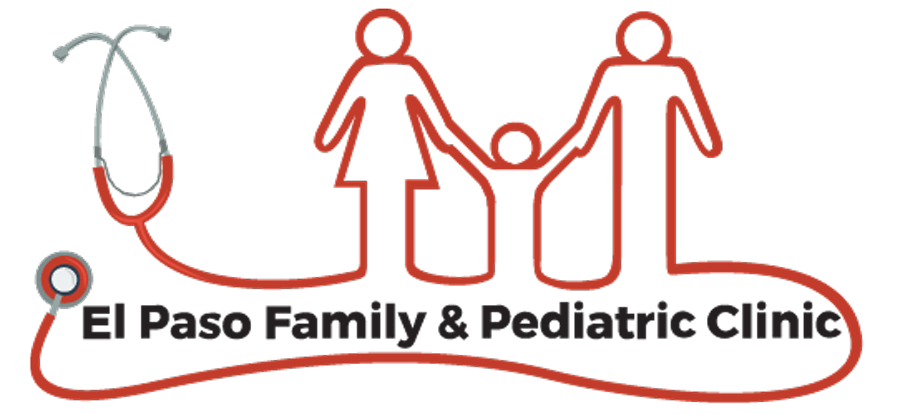
The rippling effects of covid 19 have had at least one silver lining: it has brought the conversation about health, lifestyle, and overall wellness to the surface. It’s the topic of conversation across the dinner table, among physicians and their patients, and among families and friends. Yet, it’s not always easy to make a lifestyle change from one day to the next.
So, how can you commit to a better and healthier life without overwhelming yourself? Here are a few tips to keep and maintain your weight management goals in 2022.
Are you looking to lose weight or adopt a healthier lifestyle this year? Learn about how El Paso Family & Pediatrics is helping El Pasoans do just that.
SETTING YOURSELF UP FOR SUCCESS AND A NEW LIFESTYLE
Lifestyle changes are gradual. While television commercials or social media accounts make losing weight seem simple and clear-cut, it’s not always the case. There are a lot of factors involved, including the slow integration of new healthy habits and the losing of bad ones.
For many people, the main struggle is in adopting better eating habits and active changes in their lives and sustaining them over time. This does not mean a 30-day challenge, but rather a profound integration of new behavior over a long period.
#1 Adopting New Habits – Understanding the Psychology
A few years ago, Forbes magazine published an article about the structure of habits and how to implement them. One of the biggest pitfalls, they claimed, was the attempt to do too much too soon. In other words, people often dive in head-first thinking that change is done with one quick decision. Of course, changing behavior is not that simple.
So, according to experts, part of the work of changing behavior is learning how to appropriately reward yourself when you have made strides in the right direction. For example, exercise and meditation might not have immediate rewards (like eating your favorite dessert), but over time the body becomes accustomed to these behaviors and chases these behaviors because they provide dopamine.
The trick? To apply the right habit loop and reward system.
A Note About Metabolism as We Age
Maintaining a healthy weight can also be tricky because there are a lot of factors involved. Age, genes, gender, family habits, culture, sleep, and other medical conditions will all come into play when you are trying to lose weight or change your lifestyle.
Additional Tips for Maintaining Your Weight Loss Goals
So, if you are working towards a better weight, there are a couple of tried and true pieces of advice that might help you. With the help of your primary care physician, you can lay out a plan that sets you up for success. In addition to implementing a reward system and keeping goals attainable, there are a few more tips to help you out.
#2 Set Measurable Goals
Just like you don’t want to set unrealistic goals that will put too much pressure on you and frustrate you, setting goals that are achievable and measurable will make a world of difference. Measurable goals are those that can be quantified so that you can look at the result and see whether you actually achieved the goal or not.
For example: Stating that you want to eat better is not measurable. However, stating that you want to eat 3-4 servings of vegetables a day is measurable. Similarly, saying that you want to walk every day gives too much wiggle room. In that case, you want to make it a measurable target by saying that you want to walk “at least 25 minutes every day.”
#3 Be Specific With Your Goals
Similar to what’s stated above, you want your goals to be specific and detailed. The more information you give yourself about how to obtain this goal, the better. For example, provide the what, the who, and the how. Instead of saying you are going to walk a few times a week, you want to declare that you are going to walk before work, for at least 20 minutes on Monday, Wednesday, and Friday. The specificity of the goal makes it easier on you to follow it consistently.
#4 Be Mindful of Long-Term and Short-Term Goals
It’s always good to be very clear with yourself about the short-term goals and the big picture. Blurring these two can make things difficult. If your long-term goal is to lose 100 pounds, then you should break that up into short-term goals using the above tips. How long do you give yourself for this goal? How will you get there? What are the steps required?
#5 Plan Meals Ahead of Time
This simple trick will keep you from rushing to get fast food after work. By planning small meals throughout the day or carrying healthy snacks with you, you avoid the risk of reaching for the donut at the office or the slice of pizza.
CONSULT YOUR PRIMARY CARE PHYSICIAN AND GET TO WHERE YOU WANT TO GO
Your primary care physician is great support for your weight loss and healthy lifestyle changes. Not only does your physician consider any medical conditions or concerns that might apply specifically to you—such as diabetes or heart conditions— but they will help you monitor progress, and remain disciplined with yourself.
If you’re looking to implement new health goals, call El Paso Family and Pediatric Clinic and reach your health goals the right way!
